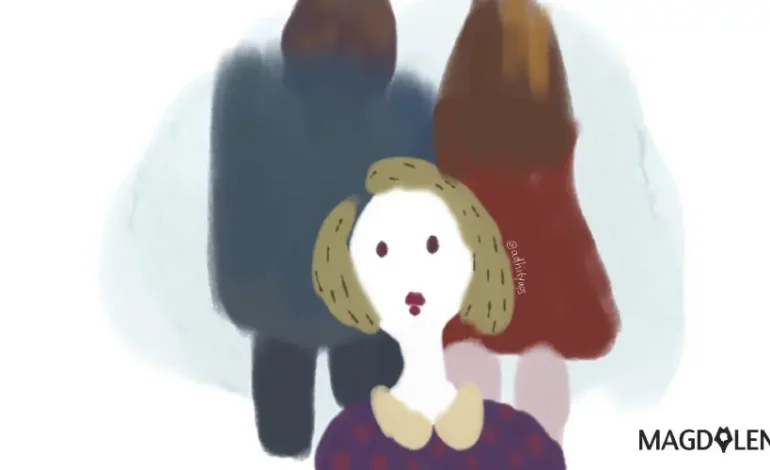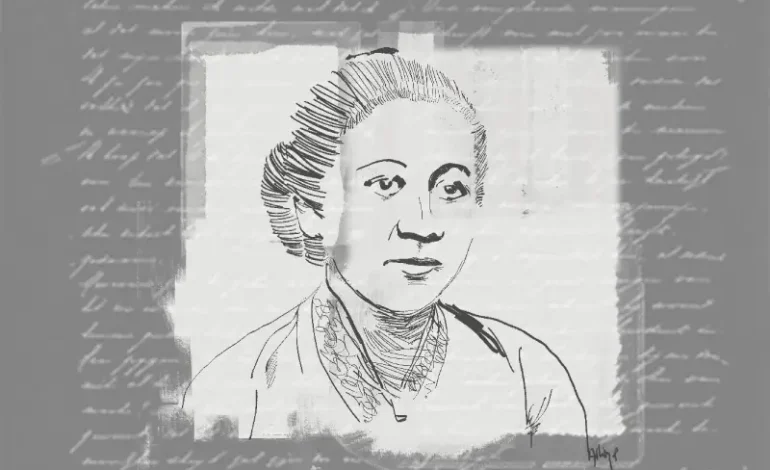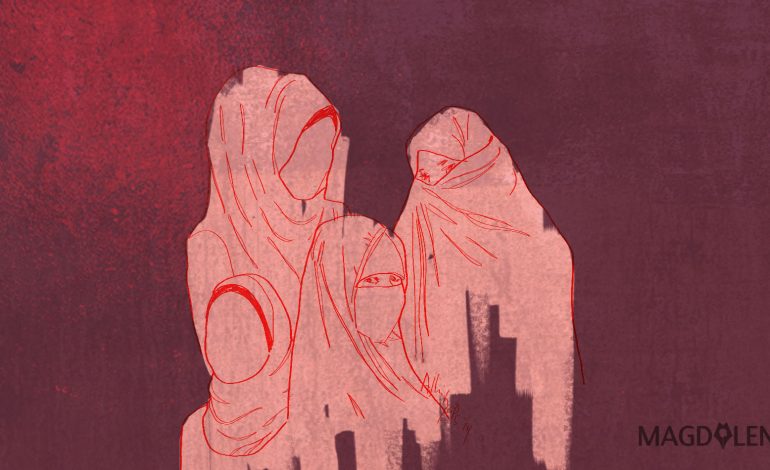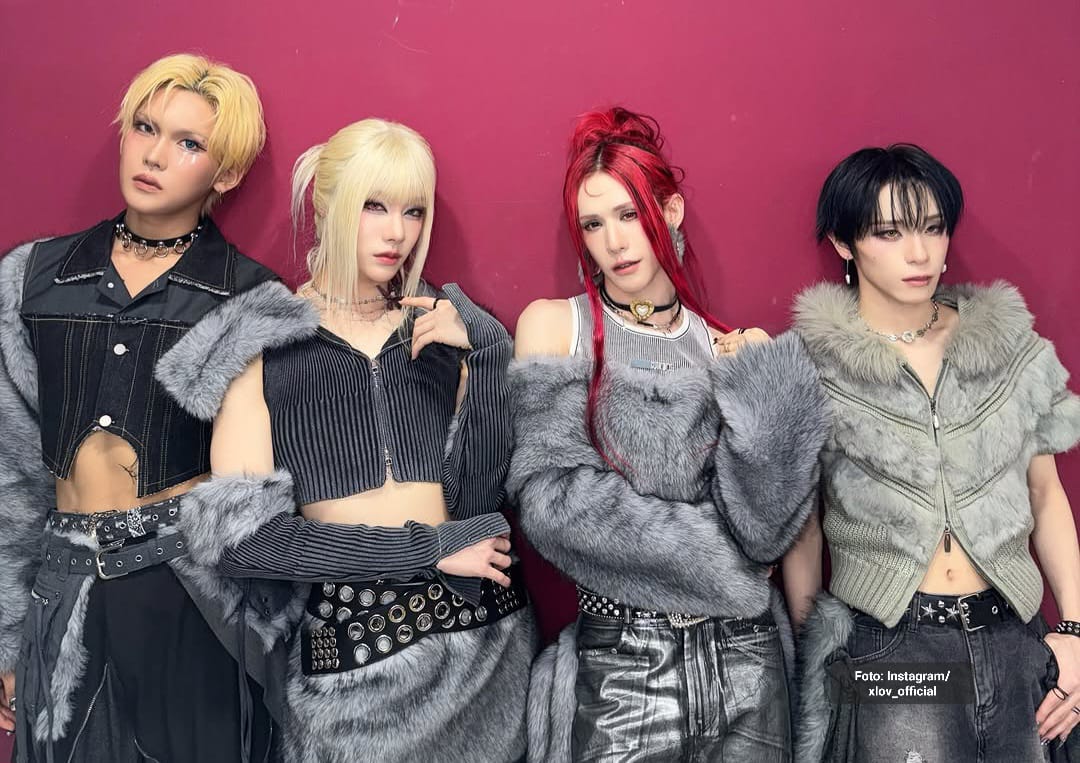How Can We Keep Friendships in a Polarized World?

In early April 2019, sound engineer Yogi Natasukma released a meme on how the three tribes of Indonesian voters – pro-Jokowi, pro-Prabowo, and the abstainers – see themselves and each other. I found the meme to be spot on. Jokowi supporters see themselves as diverse Indonesians, Prabowo supporters see themselves as happy Muslim families, and the abstainers see themselves as smart people.
Jokowi supporters, meanwhile, see Prabowo supporters as violent Islamists and the abstainers as pretentious hipsters or holier-than-thou activists. In return, Prabowo supporters see Jokowi supporters as immoral people and the abstainers as Zionists (I still don’t understand). Finally, the abstainers see both Jokowi and Prabowo supporters as foolish sheep.
You can say that the reality is more complex than that, but the meme shows how different our perceptions of each other are. When I talked to my parents about the golput, those who declared that they would not vote, they had very different perceptions about the golput crowd. Being seniors on Facebook, they never heard about younger Indonesians who were disgusted with homophobes and capitalists among the Jokowi camp. Instead, my parents associated the abstainers with Christians who were afraid of post-election riots, or who saw the election week as a week-long holiday.
We are worried about political polarization, and how it has become more pronounced in this decade. We cannot even agree how to describe this polarization. The conservatives see everyone standing to their left on the political spectrum as immoral communists. Centrists see both sides of the radicals as two sides of the same coin, while the new left sees the centrists as spineless, and even manipulative, hypocrites.
What is going on? When discussing political polarization in United States, journalists and academics blame several factors. News channels and social media connect us to opinions and people who think similarly, while preventing us from accepting different opinions. Better mobility and changing values turn us into individuals who can create our own families and communities, loosening our links to our blood relatives and neighborhood. Smartphone and social media democratize the mass media, and so everyone speaks but no one listens. When debate occurs, we treat it as a spectacle or a brawl instead of exchange of ideas.
Politics in Indonesia, however, is different to the West. Most political parties adopt Pancasila as their ideology, and Pancasila can mean different things to each party. The opposite of Pancasila seems to be Islamism, and mainstream Western ideologies like liberalism and socialism are still not adopted by any party here.
Many local and foreign commentators also hesitated to mark Jokowi as the left-wing candidate and Prabowo as the right-wing candidate. Jokowi has the more conservative running mate than Prabowo does, and is supported by more military figures. Therefore, many left-wing Indonesians declared that they would not vote, since the next president of Indonesia doesn’t care about the queer communities, rural Indonesians affected by extractive corporations, and human rights in Papua, among others.
But on 17 April, some of my friends wrote that they voted for Jokowi, or at least for pro-Jokowi PSI party, since under his leadership, activism has the better chance to flourish. Some others remained deviant, and declared that they made invalid votes to prevent their ballot from being misused. In any case, this general election is said to be the most successful in post-Reformasi Indonesia, with 80% voters turnout.
Friendship has become an eccentric thing for me in this decade. Without leaving home, I’ve made quality friendship with people in other continents, deeper than people I went to college with. Political views have estranged me and my sister from our formerly favorite aunt but united us with another aunt. Social media showed me how my former love interests had become anti-feminists, while the same service introduce me to women who love Captain Marvel and women’s football.
In theory, it is not a healthy way to run friendships. People quickly get angry over a disagreement and end friendships over different perspectives. Ideally, we are open to debates and discussions. This website has tried that by publishing different opinions on one issue and also by publishing response articles.
But in practice, people argue that shunning people with opposite political views are ethical. How can you respect someone who admires Donald Trump, knowing that they condone racism and misogyny? How can you tolerate Islamophobic, homophobic, and body shaming comments made by Jokowi supporters, both to Prabowo supporters and to the abstainers?
Even for religious conservatives, people who disagree with them are disgusting. For them, the liberals and the communists are fine with babies being aborted, with people flaunting their sexual deviance, with outsiders spreading their own cultures and religions, and with women refusing to follow their maternal nature.
My own political compass has changed wildly over the last three years. I’ve made and lost several connections as I slid to the left and then sliding back to the center, and now seeing myself as a social democrat. I feel comfortable with my political stance, and while I can’t always agree with other views, I could understand other people’s motivation, fear, identity, and idealism in adopting their political views. Nurturing friendships with people having different ideologies, however, is not easy.
For more social persons, such understanding, empathy, and engagement, could become valuable skills in bridging the gaps between political tribes. For some others, unfortunately, opposite views have become deal breakers, and to compromise is to betray both yourself and vulnerable people threatened by your ideological foes.
Older people might be more willing and more successful in negotiating their differences than younger people. Perhaps because we talked to each other more frequently in the past and there were not many forms of media competing for our attention, although in the past, social unity came at the expense of the ignored and repressed minorities.
In the meantime, I hope you’re more successful in keeping your friendships and relations than I am.
Find out how men can behave better in public and follow @MarioRustan on Twitter.
Illustration by Adhitya Pattisahusiwa






















